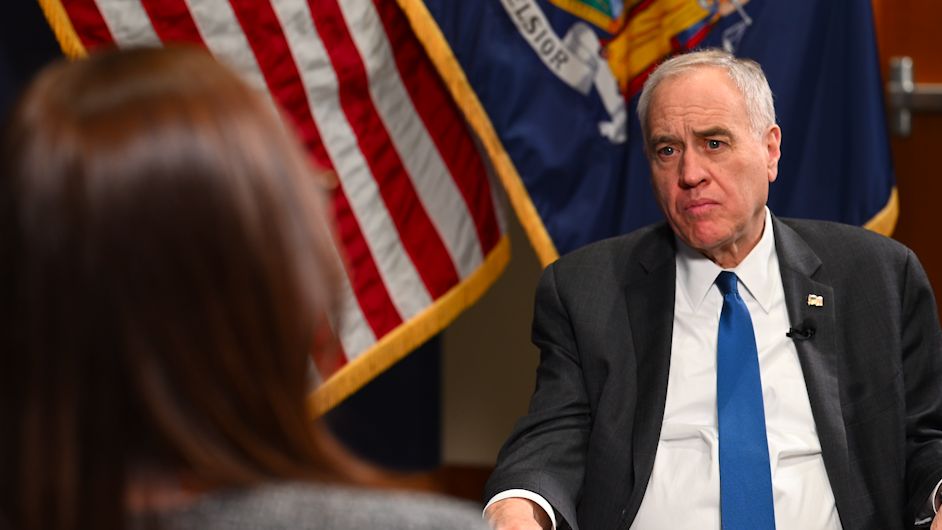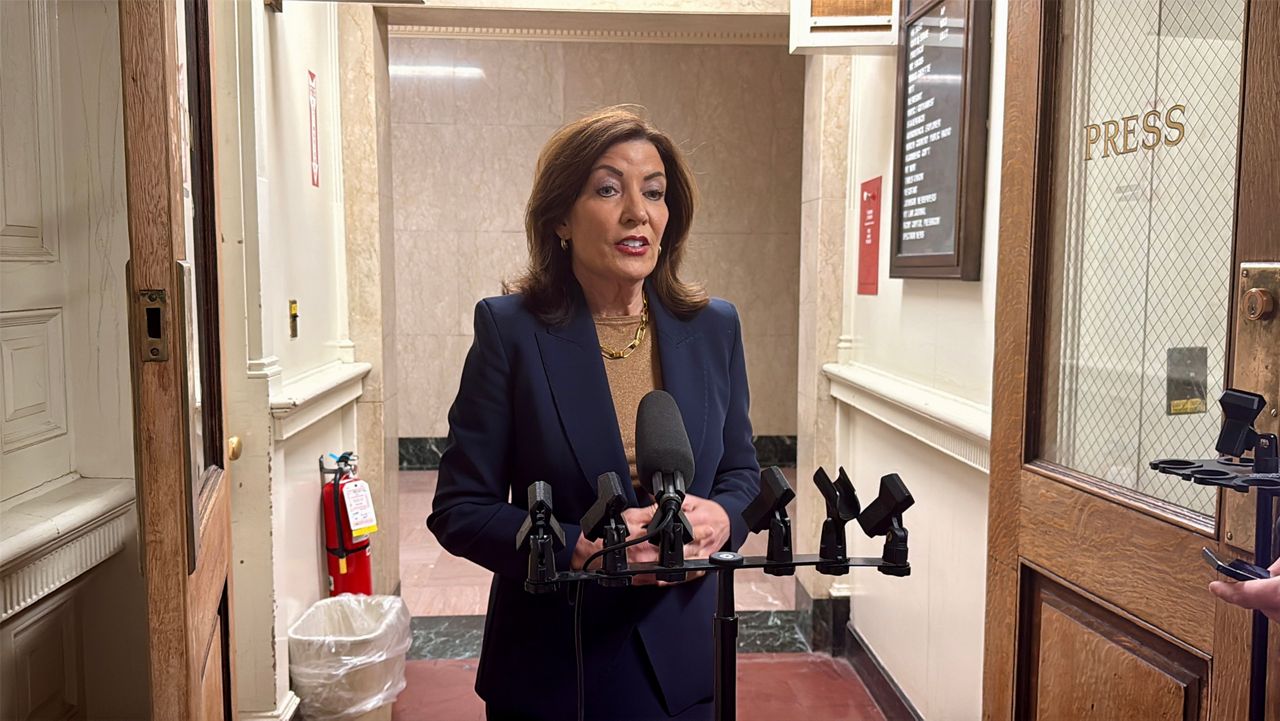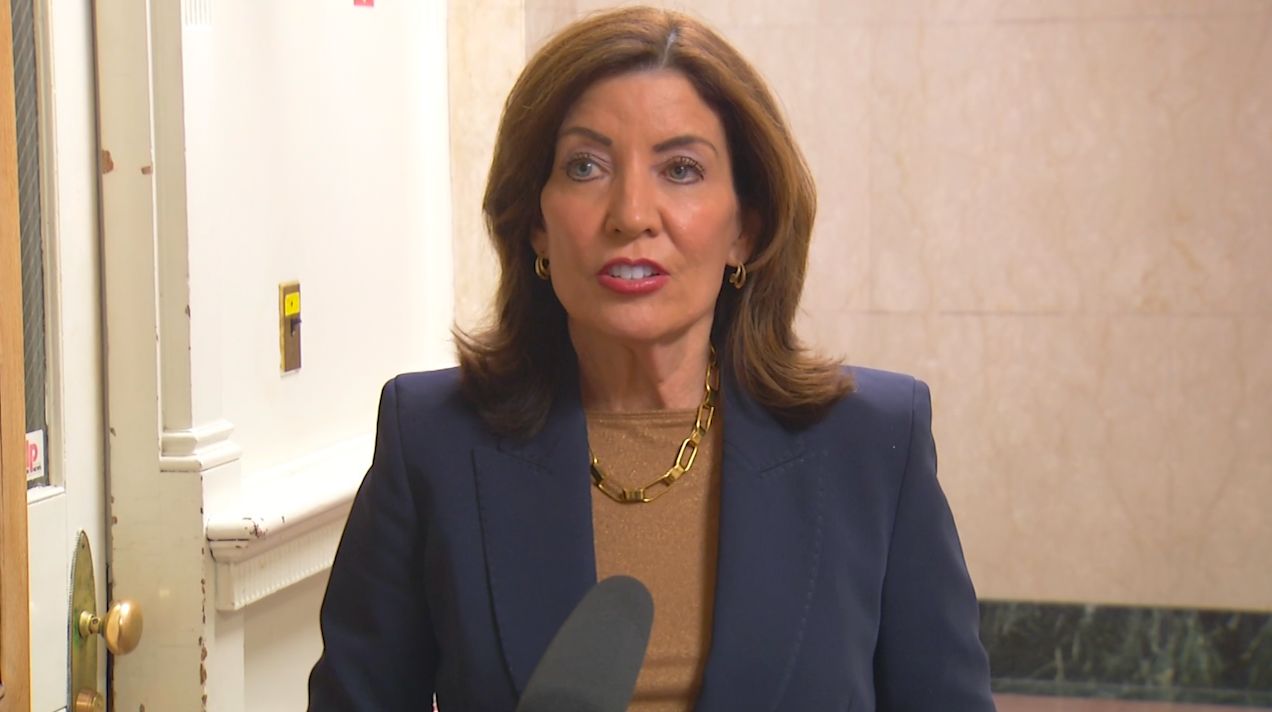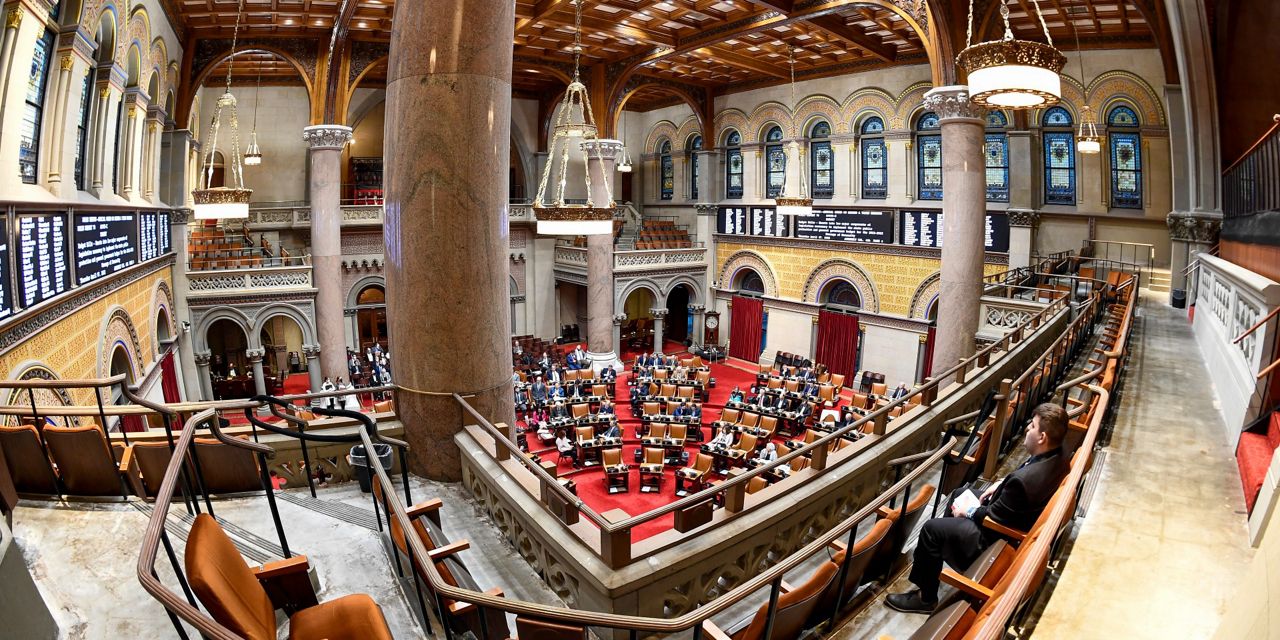New York is working to meet ambitious goals when it comes to reducing emissions — those goals being set forth in New York’s 2019 Climate Act. Meeting them requires continuous progress that climate activists say is not moving fast enough.
Those activists say they were disappointed right out of the gate when they heard Gov. Kathy Hochul's State of The State address in January, and while there were some wins, they remained disappointed as the halls of the state Capitol emptied at the end of session two weeks ago.
Critics, meanwhile, say that’s to be expected given how ambitious these goals are, and they cite the governor’s rollback of congestion pricing and missed deadlines by the state as evidence that progress on those goals could be faltering.
Liz Moran, New York policy advocate for Climate Justice, told Spectrum News 1 that in order for the state to remain on track, commitment is needed from all corners of state government.
“It’s very important for New York state leaders, the governor, the Assembly, to step up,” she said.
She argued that this session, New York leaders came up short.
“This budget and legislative session really missed the mark when it comes to demonstrating the leadership we need to make sure lawmakers are prioritizing cutting peoples energy bills and reducing climate pollution,” she said.
She acknowledged that there was some progress, largely in the form of the passage of the Climate Change Superfund Act. The legislation would require oil and gas companies to pay into a fund to help the state offset the effects of climate change.
“It’s common sense based on a long standing policy in New York, the idea that when polluters make a mess, they should be responsible for cleaning it up,” she said.
Ken Girardin, research director for right-leaning Empire Center, stressed that even the success of the Climate Change Superfund Act isn’t clear sailing. He said the bill follows the lead of a federal statute that by his estimation doesn’t quite fit the circumstances, putting it on shaky legal ground.
He pointed out that superfunds typically target specific entities for specific instances of pollution.
“In the case of greenhouse gas emissions, the fossil fuel companies arent culpable on their own for the entirety of the state's gas emissions," he said. "Its hard to say which storms were and weren’t exacerbated by climate change."
Sputtering in the final hours of the legislative session was the NY Heat Act, passing in the state Senate but stalling in the Assembly. Moran said passing the bill is a must to protect ratepayers and cut down on the state’s reliance on natural gas.
“We got very close to the finish line,” she said.
The bill is intended to limit costs to customers as New York state transitions away from natural gas, while protecting them from predatory practices.
Moran, along with others, laid the blame not squarely on the shoulders of the Assembly though, but on the late-session chaos surrounding Hochul’s congestion pricing pause.
“The governor announced this major bomb by announcing a sudden rollback to congestion pricing, another important climate policy, and it became a killer for a number of policies like the NY Heat Act,” he said.
Hochul indicated to reporters late on the last day of session, though, that the NY HEAT Act had already fallen off the radar anyway.
Girardin chalked the bill's failure up to what he describes as overzealous regulatory authority granted to the Public Service Commission.
“In a perfect world, people are moving toward more climate friendly options on their own because that’s what the market is encouraging them to do, with the HEAT act it kind of trades the carrot for a very big stick,” he said.
Looking ahead, the future of congestion pricing remains unclear, and while the NY HEAT Act is expected to be back next session. What changes may have resulted from negotiations, as well as the upheaval of the congestion pricing debate also remain to be seen.










